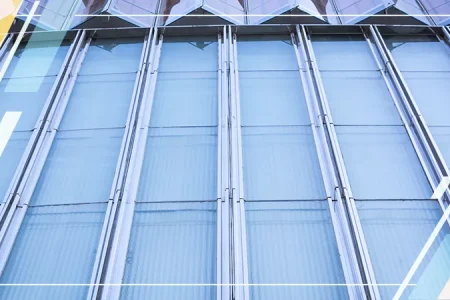The characteristics of polycarbonate (PC), such as transparency, toughness, thermal stability, and higher dimensional stability, make it the most widely used engineering thermoplastics.
These thermoplastics are created by reacting bisphenol A with carbonyl chloride in an interfacial technique. Bisphenol A Is manufactured by condensing phenol with acetone under acidic conditions. PCs are classified under the polyester family of plastics and are one of the exponentially growing engineering plastics.
In this blog, let us have a look at what polycarbonates are, their properties, and their applications across different sectors.
What is polycarbonate?
A sturdy, amorphous, and transparent thermoplastic polymer is polycarbonate. PC links together through carbonate groups (–O–(C=O)–O–) and organic functional groups. The properties of these thermoplastics are unique and find applications in various engineering applications. Top-notch strength, better dimensional stability, and effective electrical properties make it more versatile to use.
Polymethyl methacrylate and PC have similar properties. However, PCs are more costlier and have better strength. It can be used over a wider temperature range because its melting point is 155°C. PC has seamless compatibility with specific polymers and is largely used in various blends.
Following are a few applications of PCs in various industries
- Bottles used to feed babies
- Components used in electronics
- Vandal proof glazing
- Shields used during riots
- Compact discs
- Lenses used in headlamps.
What are the characteristics of polycarbonate?
A PC is a suitable material that is widely popular for its versatility, eco-friendly processing, and recyclability. Their unique chemical and physical properties make it more preferable to other products. Following are a few properties of PCs:
● Sturdy
They are virtually unbreakable, and their toughness value ranges from -20°C to 140°C.
● Better Impact Strength
Because of the resistance to impact and fracture, PC offers safety and comfort in applications that require better reliability and performance. 1.2 – 1.22 is the density of this polymer.
● Transparency
They transmit almost 90% of light and are as clear as glass, which makes them an excellent plastic. There are various types of PC sheets available to select from. Individuals can customize the polycarbonate depending on their requirements.
● Featherweight
The lightweight characteristic of a PC opens new possibilities for original equipment manufacturers (OEMs) compared to glass. This property of PC optimizes the efficiency, streamlines the installation process, and minimizes the transportation costs.
● UV Protection
The design of the PC effectively prevents radiation of ultraviolet rays. Hence, they are very effective in protecting harmful UV rays from penetrating.
● Optical Characteristics
1.584 is the refractive index of clear polycarbonate. Furthermore, because of their top-notch optical characteristics, they can form amorphous structures.
● Resistance to Chemical
PC has a high chemical resistance to aliphatic hydrocarbons, alcohols, and diluted acids. It is suggested by the manufacturers to clean the PC surface with cleaning agents that do not impact their chemical nature.
Oils and greases have a moderate impact on these polymers. Diluted alkalis, aromatic, and halogenated hydrocarbons readily attack them.
● Temperature Resistance
PCs are highly resistant to heat with thermal stability up to 135°C. Furthermore, the heat resistance can be enhanced by the addition of flame retardants without having an effect on the material’s characteristics.
Applications of Polycarbonate
In the past decade, the various blends of PCs have become increasingly commercially viable. PC finds its use in a vast range of applications in electronics, enterprise machines, optical media, glazing, automotive, medical, lighting, and appliances. It is widely used in the optical media market including computer and audio compact discs. The assortment of sheeting and glazing applications also use these polymers on a larger scale.
Following are a few industries where PC is widely used because of their unique characteristic:
1. Electronics
The capability of engineering plastics in miniaturization and fast product cycles increases its demand in the electronic and electrical market.
Resistance to heat and spike temperature with ductility and sturdiness in thin sections increase the demand for PCs in this sector. PCs are an ideal solution for manufacturing internal components and current carrying devices.
Household electrical appliances, mobile phones, connectors, electrical chargers, power distributors, lighting, and battery boxes are a few examples of applications that have PCs in them.
2. Automotive industry
Since its inception, engineering plastics have been an integral part of automotive applications. Additionally, they are constantly evolving to bring innovation that suffices the needs of modern applications. The modern manufacturers are able to produce lightweight, rough, and more durable components. Automotive lighting, headlamp lenses, dashboards, interior cladding, and exterior car parts such as bumpers and panels are common applications of polycarbonate in the automotive industry.
3. Other industries
Automotive and electronic markets drive technological innovation in engineering plastics. Other industries are exploring opportunities to integrate PCs into their applications. Polycarbonate roofing sheets and roof panels are widely used in the housing industry. The affordability, durability, and appearance of PCs increase their demand in the other sectors. Water dispensers, powerful garden tools, baby bottles, sporting goods, and medical applications are a few uses of PCs in other industries.
Conclusion
Compared to other plastics, polycarbonate is considerably less toxic. Furthermore, it is easily recycled, which makes it more eco-friendly. The heat resistance characteristics can be optimized with the addition of multiple flame retardants without having a significant impact on the other characteristics. PC is one of the most widely used engineering plastics due to its versatility.
